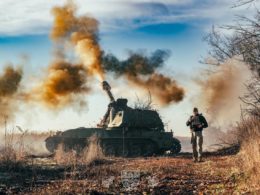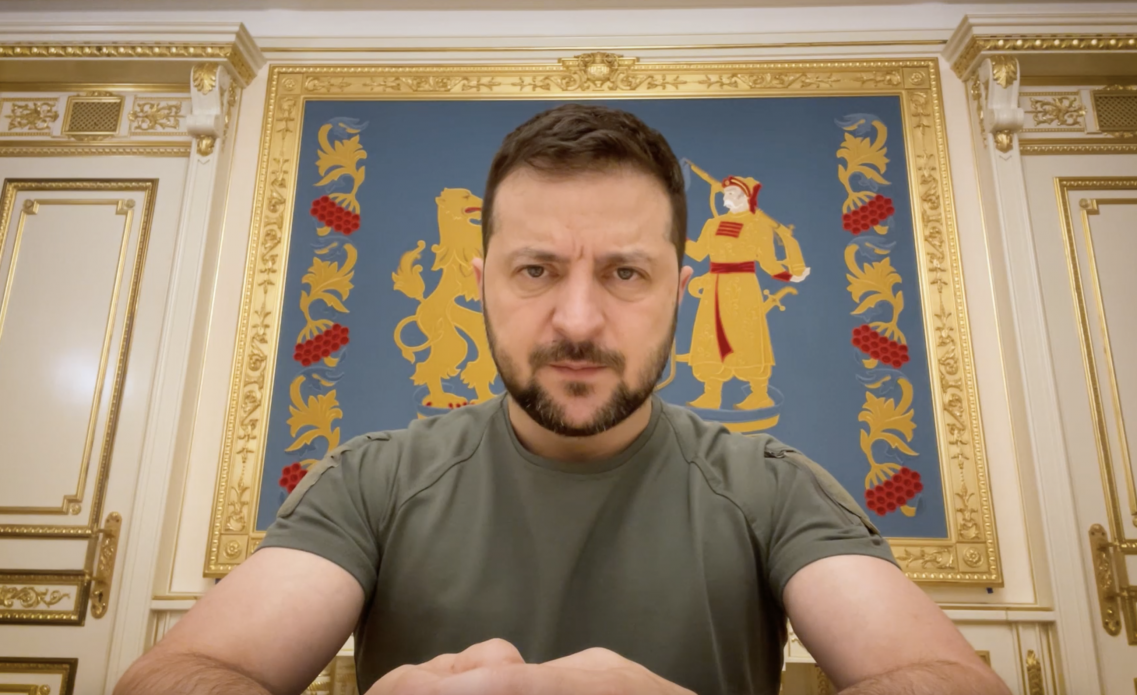The Institute for the Study of War (ISW) is a non-governmental organization in the US that meticulously analyzes military operations in various countries and has been closely monitoring the situation in Ukraine since Russia’s full-scale invasion.
Renowned for its detailed reports and street-accurate interactive maps, by which one can follow the changes in the situation at the front in detail, the ISW utilizes information from multiple open sources – visual evidence, satellite imagery, combat footage, government reports, military blogger reports, and local government reports – to provide a comprehensive account of the events on the ground.
“We collect information that is 1) not classified, and 2) we do not use any special human networks. For example, we do not have special sources in Ukraine, Russia, or Belarus with whom we can talk and gather special insider information,” says George Barros, Geospatial Intelligence Team Lead at the ISW.
In an interview with Tetiana Gaiduk of KYIV NOT KIEV, George Barros discussed the prospects of a new Russian offensive and a Ukrainian counteroffensive, problems in the Russian army and the evolution of its command, and whether political infighting in the Kremlin will become a basis for weakening Russian positions.
“The Ukrainians need to beat the Russian forces on the battlefield decisively. And to do that, more significant international security assistance for Ukraine will be the quickest accelerant,” says Mr. Barros estimating factors that could stop Russia from further waging war against Ukraine.
According to the ISW Geospatial Intelligence Team Lead, people tend to romanticize end-of-war scenarios based on who, when, and how will replace the current Russian president in office. Moreover, Putin’s unlikely replacement will not change the Russian leadership’s vision of Ukraine because the entire Russian ruling vertical has a common background and a shared worldview paradigm.
“Any of the ‘siloviki’ in the Kremlin that could, in theory, come after Putin—I don’t think that Putin is at risk for any of this. This is not a realistic conversation to have—they all come from the school of Russian historical revisionism and Russian imperialism. They all do not respect the sovereignty of the states of the former Soviet Union or the former Russian Empire. They see these territories as Russian territory, and they will continue, I think, to conduct warfare against Ukraine,” George Barros believes. “There is no basis to assess realistically that the Kremlin`s intent for Ukraine will ever change,” he adds.
Now the attention of political observers is focused on the conflict between the leader of Wagner’s private military company, Yevgeny Prigozhin, and the Russian General Staff. Wagner’s fighters, now composed in part of Russian prisoners recruited into the army in exchange for amnesty, are one of the main strike forces for the assault on Bakhmut.
“One of the things that we can see is the use of human wave tactics by assault squads in the Bakhmut area. With satellites or other airborne sensors, like drones, it is easy to see how the Russian forces, particularly the Wagner Group forces, are essentially foot-mobile infantry. They often operate without arm support, creating horrific casualties, and we can see their corpses littering the battlefield. It seems to me that the Russians have not even been conducting the casualty evacuation of their dead and wounded,” Barros comments.
Indeed, Prigozhin repeatedly complained about the lack of ammunition and accused the Russian Ministry of Defense of ill-treatment of mercenaries and of their deaths. The ISW professional believes that due to the infighting between the Russian MoD and Prigozhin, the Russians are using Bakhmut to largely destroy the Wagner Group and “put Prigozhin in his place.”
Although Mr. Barros is convinced that the internal conflict between Prigozhin and Putin will not be among the key factors that could stop the war, he believes it is good for Ukraine because it degrades their abilities to effectively use their national resources to achieve their military objectives in Ukraine.
The only way to end the war with Russia for Ukraine, according to Mr. Barros, is to win over Russia on the battlefield. For this, Western planners should exclude romantic thinking about a possible coup in Russia and keep supporting Ukraine with supplies of the necessary military equipment.
“I think the next big thing that Ukrainians need to improve their ability to conduct combined arms warfare is tanks: main battle tanks and armor. Because Ukrainians need to have the ability to conduct protected mechanized maneuvers. They’re also going to need a lot of armored personnel carriers,” says George Barros.
It is known that British Challenger 2 tanks have arrived in Ukraine. The Minister of Defense of Ukraine, Oleksiy Reznikov, announced this on his Twitter page without specifying the number of tanks. Earlier, the British Ministry of Defense reported that crews and tanks would arrive in Ukraine in time for the spring counteroffensive.
Germany also handed Ukraine 18 Leopard 2A6 tanks and about 40 Marder BMPs. The German Minister of Defense earlier stated that Ukraine would receive 21 Leopard 2 tanks in March. Eight tanks will be sent from Germany, three more from Portugal.
It is essential not to underestimate the enemy, which is why KYIV NOT KIEV asked Mr. Barros about the ISW’s assessment of the quality of the Russian army and whether the Russian command has evolved over the year.
Before the full-scale invasion, the Institute for the Study of War did not support the invasion forecast. However, Russian troops were massing on the borders with Ukraine, and Western intelligence agencies were warning of the danger of a full-scale war. According to Barros, the mistake of the ISW was that they did not expect that the Russians would dare to attack Ukraine, having a whole series of problems within the army – with logistics, command, etc. – which simply could not give the Russians the opportunity to achieve success on the battlefield:
“Any kind of campaign based on this would go very badly. As it did in the Battle of Kyiv.”
According to Barros, the Russians have evolved since then. They are solving their problems: appoint an overall theater commander (after Lapin and Surovikin, it’s now Valerii Gerasimov, reappointed), who was not there at the beginning of the war, improve the system of units’ deployment etc.
“Russians will not keep making mistakes forever. They are learning and improving, and the window of opportunity for Ukrainian Forces to exploit Russian mistakes is closing, which is why it is very important that we (the US – ed.) send Ukraine as much equipment as possible, as quickly as possible, to defeat the Russians while they are still vulnerable,” says Barros.








